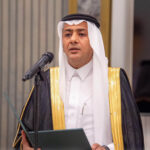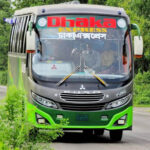A H M Masum Billah: The construction of Bangabandhu Sheikh Mujib Shilpa Nagar in Bangladesh marks a significant step in the country’s economic development. This industrial city is being built on 33.805 thousand acres of land on the sea coast at Mirsarai and Sitakunda in Chattagram district and Sonagaji in Feni district. Under the directives of Prime Minister Sheikh Hasina, the project aims to combine environmental and economic activities in an unprecedented way, making it the first eco-friendly economic zone in the country.
The Bangladesh Economic Zone Authority (BEZA) is in charge of carrying out the Bangabandhu Sheikh Mujib Shilpa Nagar project. The organization has already allocated around 6500 acres of land among 153 business entities. They have planned to invest roughly BDT 1 lakh and 50 thousand crores in the city. BEZA plans to allocate land to more than 400 institutions by 2030. These companies are expected to invest 20 billion dollars here. This project is expected to transform the entire economy of Bangladesh in the days ahead, generating exports of USD 25 billion and creating employment opportunities for 1.5 million people in the next 15 years.
One of the best things about Bangabandhu Sheikh Mujib Shilpa Nagar is that it is in a good location. Situated on the Dhaka-Chittagong highway, it is only 60 km from the port city of Chittagong. The cost of doing business and living in Mirsarai is significantly lower than that of other developing cities in the world, making it an attractive destination for foreign investors. So far, investors from Japan, China, India, the United Kingdom, Singapore, Korea, Malaysia, and Australia have come forward to invest in the industrial city.
On November 20, 2022, Prime Minister Sheikh Hasina inaugurated a total of 50 industrial units, projects, and structures located in various economic zones across the country. Among the inaugurated establishments were the production activities of four domestic and foreign-owned industrial establishments situated in Bangabandhu Sheikh Mujib Shilpa Nagar. She also inaugurated the foundation stones of nine other industries in the city during the same event.
Asian Paints Bangladesh Ltd., which has invested $34 million in this economic zone, manufactures paints and allied products such as emulsions. Macdonald Steel Industries, which is a joint venture between Japan and Bangladesh, has also started making products. Their goal is to make 300,000 metric tons of steel plates over the next five years. Several other companies are in the preparation stage to start production soon.
The project would cost BDT 4 thousand 347 crores to build, with the World Bank giving a loan of BDT 3 thousand 967 crore and the government funding the remaining BDT 379 crore. The goal of the project is to turn this industrial city into a self-contained, world-class industrial city with seaports, rail and road connections, power plants, marine drives, and residential areas. Five-star hotels, tourist centers, parks, hospitals, schools, and universities will also be established here.
The project area has a number of special zones, such as a 500-acre zone for BGMEA. This will be used to build factories, wastewater treatment plants, and other services, as well as roads and lakes. It is expected that a total of USD 3 billion will be put into this garment zone. Because of its proximity to Chittagong Port, almost all of the country’s leading garment manufacturing groups have expressed interest in relocating to this industrial city.
Other industries that will be set up here include agro-products and agro-processing machinery, integrated textiles, leather and leather products, shipbuilding, motorbike accessories, food and beverages, paints and chemicals, paper and related products, plastics, light engineering, and pharmaceutical industries. This range of industries will create a diverse economic environment, which will enable sustainable economic growth.
In addition to its economic benefits, the construction of this industrial city has several environmental advantages. The project aims to preserve and protect the natural beauty of the region by incorporating green technologies into its design. The city is expected to reduce pollution levels and ensure a sustainable environment for future generations. With the effluent treatment plant in place, industrial waste will be cleaned up before being released into the environment. This will keep the soil and water from becoming polluted.
Also, building homes, schools, and universities in this industrial city will make it less necessary to drive long distances to work. This will reduce traffic congestion, air pollution, and the time and cost of travel, thereby improving the quality of life for the residents.
The Bangabandhu Sheikh Mujib Shilpa Nagar is expected to be a game-changer for the country’s economy. The creation of job opportunities and the increase in exports will boost the economy, improve the standard of living of the people, and promote sustainable development. The project is a testament to the vision of Prime Minister Sheikh Hasina and her government’s commitment to transforming Bangladesh into a smart country by 2041. The construction of the city with a focus on environmental sustainability and green technologies will ensure that the development is sustainable and in harmony with nature.
Writer: Deputy Principal Information Officer at PID.







